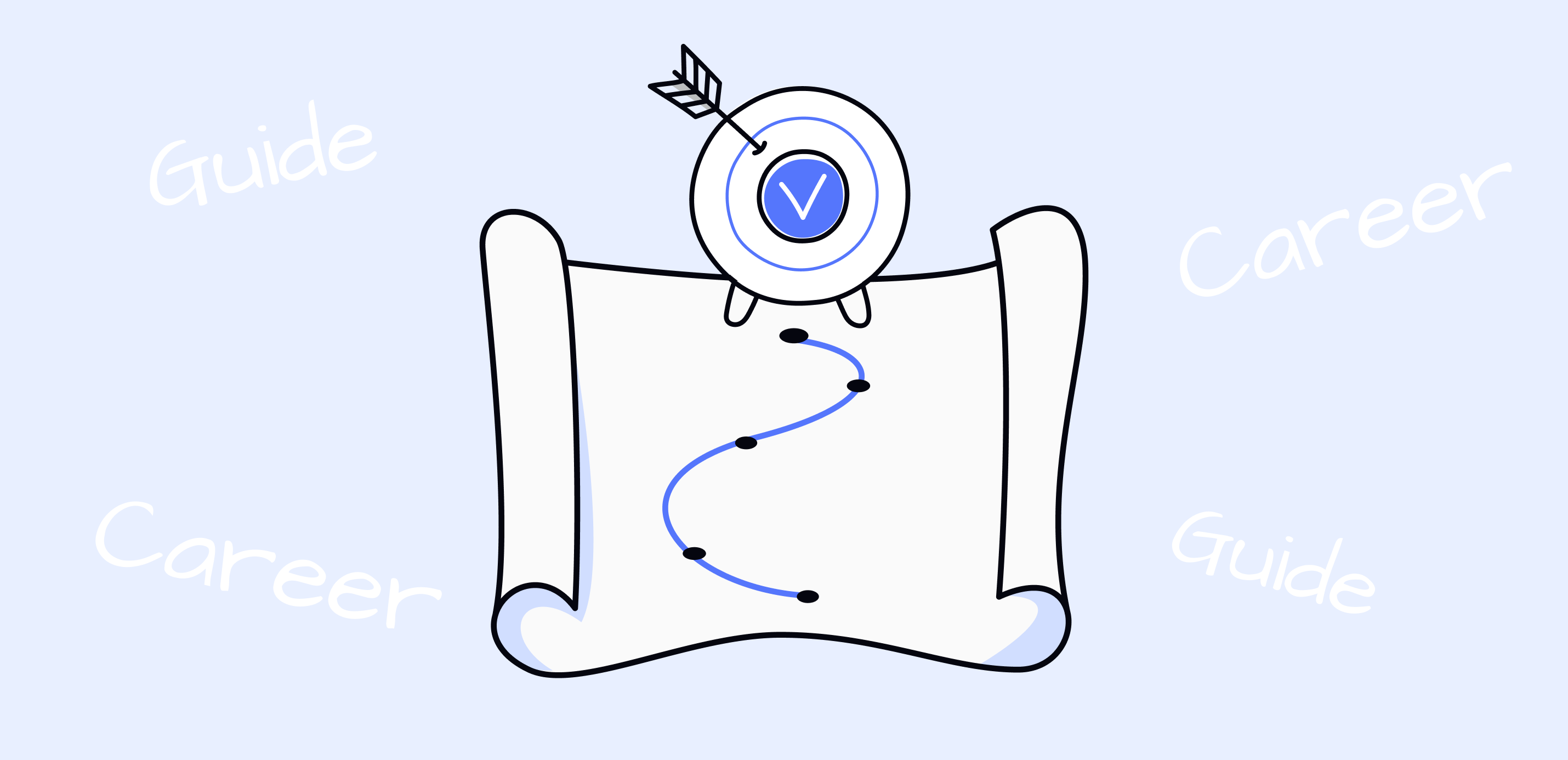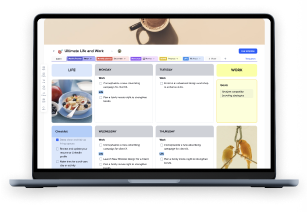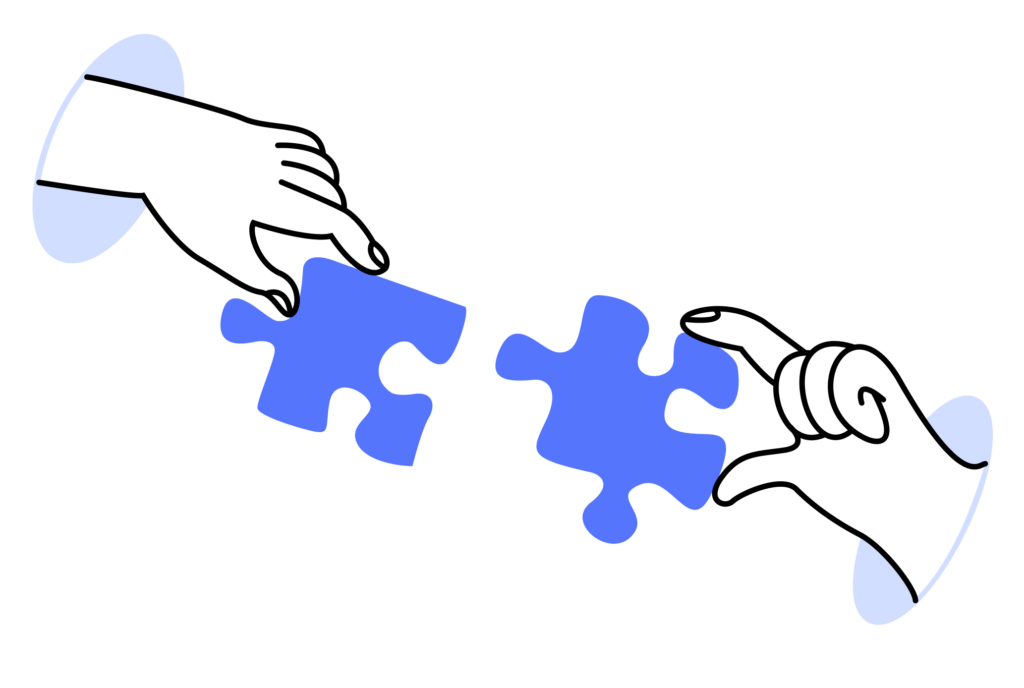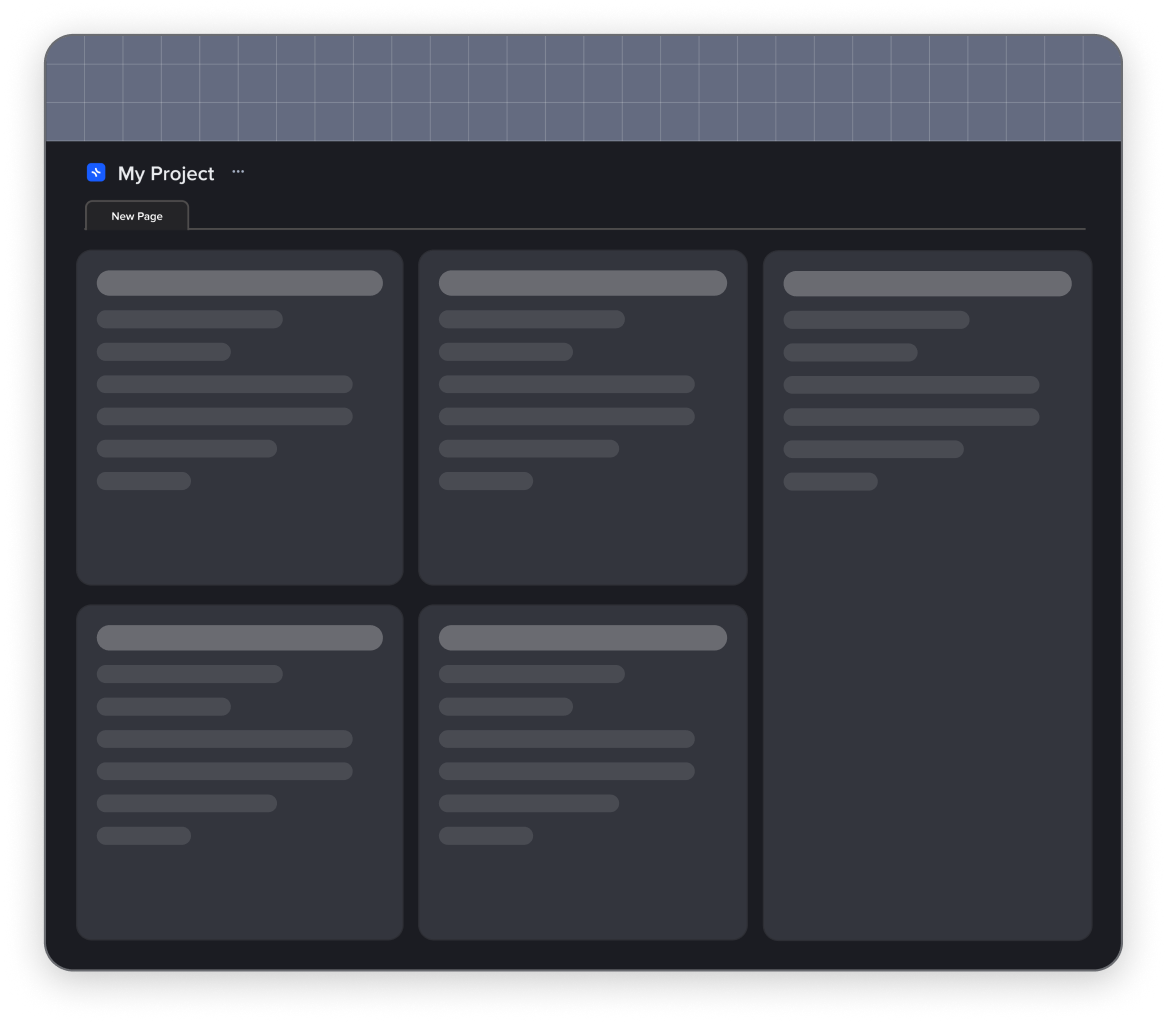Without a proper plan, career paths sometimes take strange directions. When people aren’t sure what they want to get in the long run, they tend to underestimate their roles, procrastinate, and finally find themselves in a place they don’t feel comfortable and suitable for them. While we start building our personal plans like creating a family, buying a house, etc., when we’re kids, career goals often remain untouched long after the career is started, unless a company requires that.
Planning for years ahead, especially when some factors depend on an unstable economy, is hard. However, with the right tools and guidance, it becomes easier. xTiles is a perfect space for planning your career goals. Its flexibility and customization will make your plan grow and develop with you.
Understanding Long-Term Career Goals
Career aspirations are the long-term career objectives that may take several years to decades in the overall planning of an individual’s career. These goals reflect your plans for your career, and in most cases, they include major activities or objectives that you seek to achieve.
Key characteristics of long-term career goals include:
- Time frame – these goals often take several years to accomplish.
- Complexity – these goals are always time-bound and can be carried out in one or more phases.
- Significance – these goals have to emphasize major job milestones or a person’s important accomplishments in life.
- Alignment – these goals should be consistent with your beliefs and career goals.
- Flexibility – they may also be flexible to adapt to changes in your career and in your life.
What are some career goals examples? You may want to change careers because you don’t feel satisfaction at the workplace anymore; you may want to take a leadership position or acquire a specific job title to manage large teams or departments. They also may be smaller, like developing time management skills or leadership skills. They always depend on your personal traits, beliefs, and aspirations, but they will define your career trajectory, so setting them up is an elaborate process that takes time and needs revisions.
The importance of setting long-term career goals
Long-term career goals define success, which doesn’t happen overnight, and since many people want immediate results, they neglect to set goals a few years or even a decade ahead. They are important because:
- If you share your long-term career goals during a job interview, it may help you to get a few points.
- They give direction to where you would like your professional life to be, making you more dedicated.
- Your goals can be useful while making choices about your career path as they provide you with criteria for selecting options that will lead you to your desired end goal.
- Having a defined target is beneficial as it can be a motivator, especially in lean times or when things are not going well.
- Career objectives make you learn and develop more skills.
- When you strive towards realistic goals, you are more likely to be satisfied with your job and the results you are getting.
Having career goals also means less stress because of uncertainty. You know where you’re heading, even though the current landscape might be a bit confusing.
How to Set Long-Term Career Goals
Setting long-term career goals is definitely no easy task, as no one can foresee the future, but it is a crucial step in shaping a fulfilling career that aligns with your personal values and aspirations. It might seem like there’s no point in doing as everything might change drastically, but with the right guide, it won’t take you long, so you’re sacrificing just a little and can be prepared.
Here’s how to effectively set long-term career goals:
Self-reflection
Begin by examining your interests, strengths, and personal values. If this is your first job, concentrate on what you like and what you would prefer to avoid in your future professional life. Consider what truly motivates you and what kind of work brings you satisfaction. This introspection helps guarantee your career goals are authentic and meaningful to you and can be interesting for potential employers.
Also, evaluate your current skills, experience, and qualifications in relation to your long-term goals. This assessment will help you identify gaps you need to address.
Envision your ideal future
Imagine where you’d like to be in a few years or even decades. What role do you see yourself in? What impact do you want to make? If it sounds too much, don’t worry. It may be a great motivation to work hard. This long-term vision will help shape your long-term career goals.
Research potential career paths
This step is especially important for people who are looking for their first job. However, those who already have careers can do it, too, if they don’t feel they are doing the right thing.
Explore various career options that align with your interests and values. Look into the qualifications, skills, and experience required for these roles. This research will inform the steps you need to take to achieve your goals.
Define specific, measurable goals
Setting goals that can be reached is important if you don’t want to feel frustrated when your current success doesn’t match your great plan. You may use the SMART framework to shape your goals properly. A smart goal is much more powerful than a vague goal with no structure and far from the current situation.
Transform your vision into concrete, actionable goals. For example, instead of a vague goal like “gain proficiency,” set a specific target such as “get a leadership role in marketing within 7 years.
Create a step-by-step plan
Break down your long-term goals into manageable steps. Don’t underestimate short-term career goals, as they are breaks to build your master plan to succeed. This might include short-term goals like improving your communication skills, gaining professional certification, or taking on new responsibilities in your current role.
Consider potential obstacles
This is the least pleasant stage of planning, but you need to be prepared to deal with things and situations that might affect your success. Anticipate challenges you might face, such as the need for additional education, getting new skills, or the need to leave the current company to seek better opportunities for growth. Planning for potential obstacles will help you manage them more effectively when they arise.
Seek advice and mentorship
Your long-term career goals will have a huge impact on what you do and how you do it. So, don’t be afraid to consult with mentors, career counselors, or professionals in your desired field. Their insights can provide valuable perspectives and help refine your goals.
Be flexible and adaptable
Remember that career goals can change as you grow and circumstances change. They have to suit you, not the other way around. Be open to adjusting your goals as you gain new experiences and insights. Also, adjust them to your personal development objectives when they change.
Write it down and review regularly
Document your long-term career goals and the steps to achieve them. Review and update this plan regularly to ensure you stay on track and your goals remain relevant. You may create a project in xTiles to organize your goals and track their progress. Here’s how to do it in a few steps:
- Sign up or log in if you already have an account.
- Create a new project. You can use built-in designed elements to structure the page faster.
- Create a tile and add your bravest aspirations and dreams. This will be the starting point for your short-term goals that will guide you. Every time you’re unsure what to do, go back here.
- Then, create a tile and add a to-do list with everything you need to do to fulfill your dream.
- Now that you have a plan, you can create a monthly or weekly plan using the xTiles task feature and Calendar. Reminders will help you stay motivated and on track. You can add a new page to your current project and then go deeper and add sub-pages for months or weeks (depending on the planning structure you choose).
- You can use your plan in xTiles as your place of truth while working toward your goal. You can add any resources and materials that will help, as well as images and widgets that can motivate and inspire you. Share it with others, which will be especially helpful if you decide to seek professional help.
The process of setting and pursuing these goals is as valuable as achieving them, fostering continuous growth and development throughout your professional journey.
Strategies for Achieving Long-Term Career Goals
Realizing long-term career goals requires dedicated effort over multiple years. However, you still will need to work for multiple years, so why not work with clear goals ahead of you instead? These strategies can help you stay on track and make steady progress no matter what career goals you have:
- Learn continuously to be a few steps ahead of everyone in your industry, or at least on your team. Regularly update your skills and knowledge through courses, workshops, and industry certifications.
- Actively seek diverse job experiences. Pursue varied roles and projects within your field to learn how it functions on all levels. It will broaden your skill set and make you more adaptable to changes in your industry.
- Build and maintain professional relationships both within and outside your current organization. These connections can provide valuable insights, mentorship, and potential career opportunities.
- Embrace сhallenges. In any case, you can’t avoid them in this world. Volunteer for challenging assignments that stretch your abilities. These experiences accelerate your professional growth and demonstrate your potential for higher-level roles.
- Don’t stake everything in hard skills; develop your soft skills as well. Focus on improving communication, leadership, and interpersonal skills. These are crucial for advancing to higher positions and succeeding in a potential career change.
By consistently applying these strategies, you can steadily work towards your long-term career goals, even when they span multiple years or involve significant changes in your professional path.
Conclusion
The path to success is rarely straightforward, so you could, and probably will, come across unexpected opportunities or obstacles. See these as chances to grow and learn.
As you gain more experience and your professional landscape changes, your goals may change, too. This is a normal part of career development, and your ability to adapt will be a superpower.
And don’t forget the power of visualization and positive thinking. Imagine yourself in the role or achieving your career goals regularly, especially during tough times. With a plan, effort, the right mindset, and useful tools at your disposal, you’ll be set.
FAQ
Do I need to set long-term goals for professional development? Can’t it happen naturally?
Some professional development can happen naturally, but setting long-term goals gives direction and motivation. Without planning, career paths can go off the rails, and you might underestimate roles and procrastinate. Long-term goals keep you focused and intentional in your career.
Do career goals guarantee career stability?
Career goals without actions don’t mean stability, but they can contribute to it. They reduce stress from uncertainty because you know where you’re headed.
Do my career goals depend on my personal growth?
Yes, your career goals are connected to your personal growth. Self-reflection is key when setting career goals and examining your interests, strengths, and personal values. As you grow and gain new experiences, your goals will change to match your changing perspectives and aspirations.
How can I set my long-term career goals?
Start with self-reflection to understand your interests and values. Then, imagine your ideal future and research potential career paths. Define specific, measurable goals using the SMART framework, and create a step-by-step plan using xTiles to document and track your goals.


